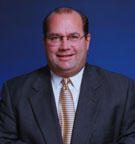
Dave Doran, pastor of Inter-City Baptist Church and president of Detroit Baptist Theological Seminary, recently published a thought-provoking article titled “The Danger of Deference.” Two paragraphs near the end summarize the point well:
What is the relevance of this to contemporary church life? It seems that we need to re-evaluate the issue of deference, particularly as it relates to those who are advancing doctrines and practices that are contrary to the Scriptures. The concept of “contrary to the Scriptures” is very important—I am not suggesting that we impose our opinions, wishes, and judgments on other people; the clear teaching of the Bible must be the authority at all times. There are a lot of things about which believers and churches will disagree with one another, and as long as no clear doctrine of the Scripture is discarded or denied, then deference is right and necessary. But where matters of biblical doctrine are at stake, deference is not the right choice.and
Biblical Fundamentalism must stand unflinchingly for the truth of God’s Word against false doctrine and practice no matter what its origin and who practices it. Within the circle of sound doctrine, there is room and need for proper deference toward one another. Outside of that circle, deference is really unfaithfulness to God and His Word. Any unity obtained that survives only because we are unwilling to confront error will be short-lived and ultimately destructive. The Apostle Paul knew that factious people who refuse to be corrected must be rejected for the sake of obeying God and protecting His people. It seems like we would do well to remember this important truth.It is incomprehensible to me that this this article needs to be written, but the pluralistic, deferential spirit of this age is so often reflected in the evangelical and fundamentalist movements that Doran sounds a much-needed clarion call.
To be sure, there is a point of tension in this article. Several questions immediately leap to my mind:
1) How do we identify the "clear teaching of the Bible" and the "clear doctrine of the Scripture" to which Doran alludes?
2) What are the parameters of the "circle of sound doctrine"?
3) At what point do we cross the line between standing "unflinchingly for the truth of God’s Word" and imposing personal "opinions, wishes, and judgments on other people"?
I think these questions are legitimate, and the consensus answers will not be easily apprehended. Some common attempts to address these questions are insufficient. Regardless, we will learn a great deal about who is willing to defend militantly this circle of sound doctrine as we observe the nature and grounds of this debate.
5 comments:
Thanks, Jon. Bob's post must have caught me on vacation and I totally missed the discussion. So my rip-off of your "clarion call" line was total coincidence. Honest.
For anyone who hasn't already seen this (I may be the only oblivious one): http://weblog.wordcentered.org/archives/2005/07/05/deference.php
"the consensus answers will not be easily apprehended"
What does this mean?
Sorry. It means that I think it's highly unlikely that we will get fundamentalists to come to a general agreement on the answers to the questions I raise. Essentially, we'll never achieve consensus on the "circle of sound doctrine." Doran's example of "the meaning and necessity of repentance" is a prime example a doctrine concerning which it's inconceivable that all the folks who call themselves fundamentalists will agree.
And here I don't mean that we won't all agree on the biblical doctrine (although we won't). I'm talking about the fact that we all won't even agree that deviation on this doctrine is intolerable. Pluralism has infected fundamentalism as well as evangelicalism. We have long tolerated contradictory positions on central theological issues to co-exist peacefully.
The problem, it seems to me, is that over the years, Fundamentalism's "circle of sound doctrine" has been drawn (arbitrarily) smaller and smaller, so that now there is an annual conference on "Baptist Fundamentalism" at my dear Alma Mater. Evangelicalism is like a series of concentric cirlces surrounding Fundamentalism, and you'd better not turn and talk to anybody in the next circle out, and certainly never acknowledge anyone in the circle beyond that. And you'd better keep your head up, lest you find yourself on the outside next time the circle is redrawn.
Post a Comment